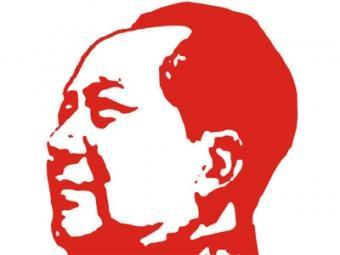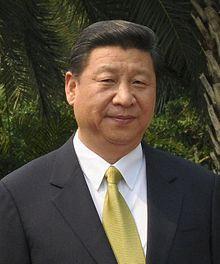A fascinating article by Gordon C. Chang at The National Interest site is worth reading in full not least because this century is going to be dominated by Chinese ambition. Much, of course, depends on the character of the 'Dear Leader', Xi Jinping.


To be honest, having read Mr. Chang's article I'm not sure whether to be pleased or worried! According to him, Mr. Xi is determined to resurrect the reputation of Chairman Mao, hitherto a sort of non-person in Chinese public life not least because, as Mr. Chang reminds us, vast swathes of today's population were, 'back in the day', up to their elbows in the blood and misery either as victims or as perps! Either way, the last thing they wish to talk about, let alone celebrate, is Chairman Mao. It is also worth noting that Xi's father who had reached a fairly high rank in the Party hierarchy was himself purged and sent to work in a factory which was a set back to his then teen-age son.
Despite Mr. Chang's thoughtful analytical efforts it is difficult to be sure exactly what is driving Xi Jinping, or indeed, in what direction. Understandably, the command and control of the Communist Party predominates because any threat to the Party's supreme position of power would be a disaster for everyone in it! Mr. Chang emphasises that in various recent policy papers issued by the regime there have been severe warnings against any attempt to emulate what they would call 'bourgoise values', such as, according to Wiki:
- Western constitutional democracy
- Universal values of human rights
- Western conceptions of
- Media independence
- Civil society
- Pro-market neo-liberalism
- "Nihilist” criticisms of past errors of the party
This is re-enforced by an apparent determiationon on Xi's part to celebrate the character and achievements of Mao:
Yet the new leader—the general secretary of the Communist Party since last November and state president since March—has not waited to begin the celebrations. Months in advance of the anniversary, Xi has made pilgrimages to locations Mao made famous, reminded audiences of the Great Helmsman’s iconic sayings, and reinforced Maoist education and indoctrination across the country. In June, he borrowed Mao’s language and tactics and initiated his “rectification” and “mass line” campaigns. In August, he sounded like Mao himself when he called for “ideological purification.”
Apparantly, observers of an optimistic nature put this sudden enthusiasm for all things Mao down to Xi's determination to use it as a means of exerting total control of the Party cadres. Mr. Chang, pessimist that he is, will have none of it.
Yet whether or not he is a Maoist, Xi’s constant repetition of reactionary themes suggests they will become the defining element of his rule. Last December, when he had been general secretary for only a month, he gave a fiery secret speech to cadres in Guangdong province staunchly defending Party prerogatives and lamenting the fall of the Soviet state. Xi told officials they must heed “deeply profound” lessons and return China to Leninist discipline. “Why did the Soviet Union disintegrate? Why did the Soviet Communist Party collapse?” he asked. “An important reason was that their ideals and convictions wavered.”
Xi is not wavering; his message now is essentially the same as the one he delivered in Guangdong. Since September, cadres across the county have been forced to watch a six-part documentary, “20th Anniversary of the Death of the Soviet Party and State: As the Russians Relate.” The film, part of Xi’s campaign to rejuvenate the Chinese Party and restore ideological rigor, defends Stalinism and reinforces the themes of his December oration. If there is a villain in Xi’s universe, it is Mikhail Gorbachev, who attempted to open his political system with Western-style reforms and relax the Soviet Communist Party’s monopoly on ideology.
Amongst this swirling mass of 'unknown unknowns' (to quote a phrase!) there are the mass of the Chinese people already beginning to flex their newly-found muscles built up by a combination of education, prosperity and social networking which allows them to realize they are not alone and isolated.
Mr. Xi has, I would suggest, the most difficult job in the world so rather him than me!
